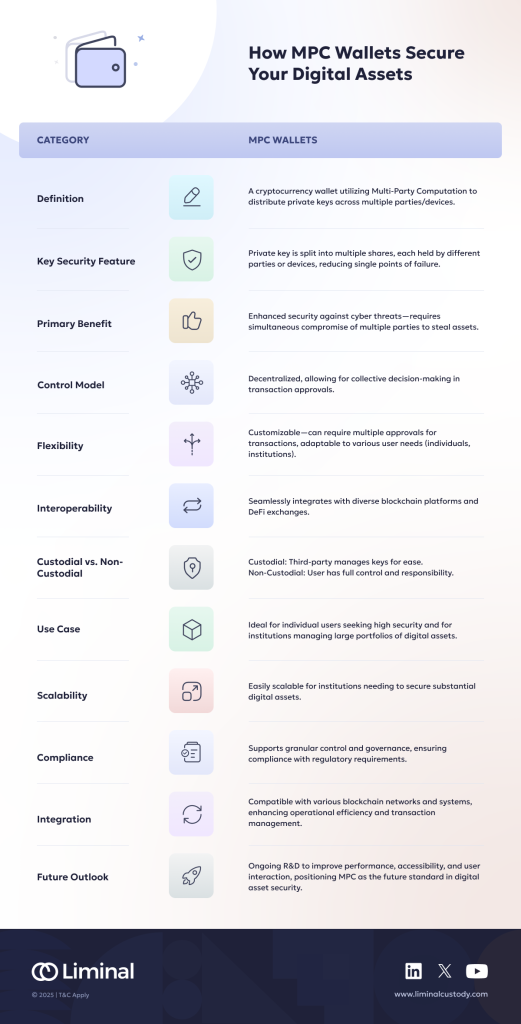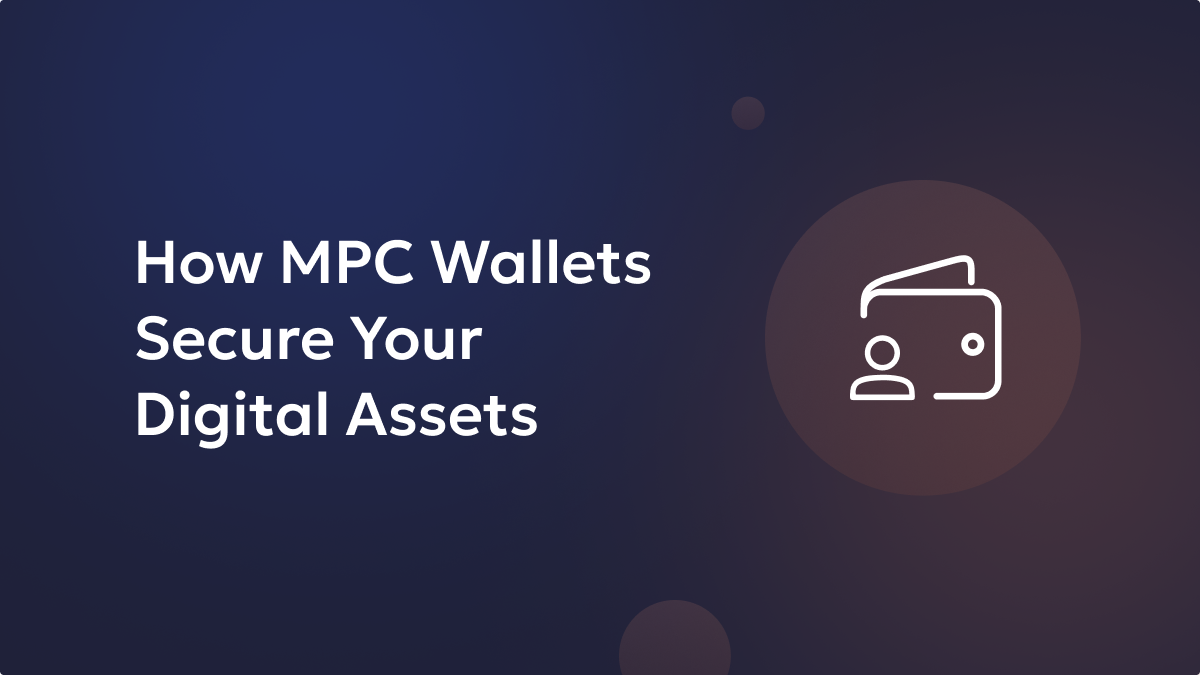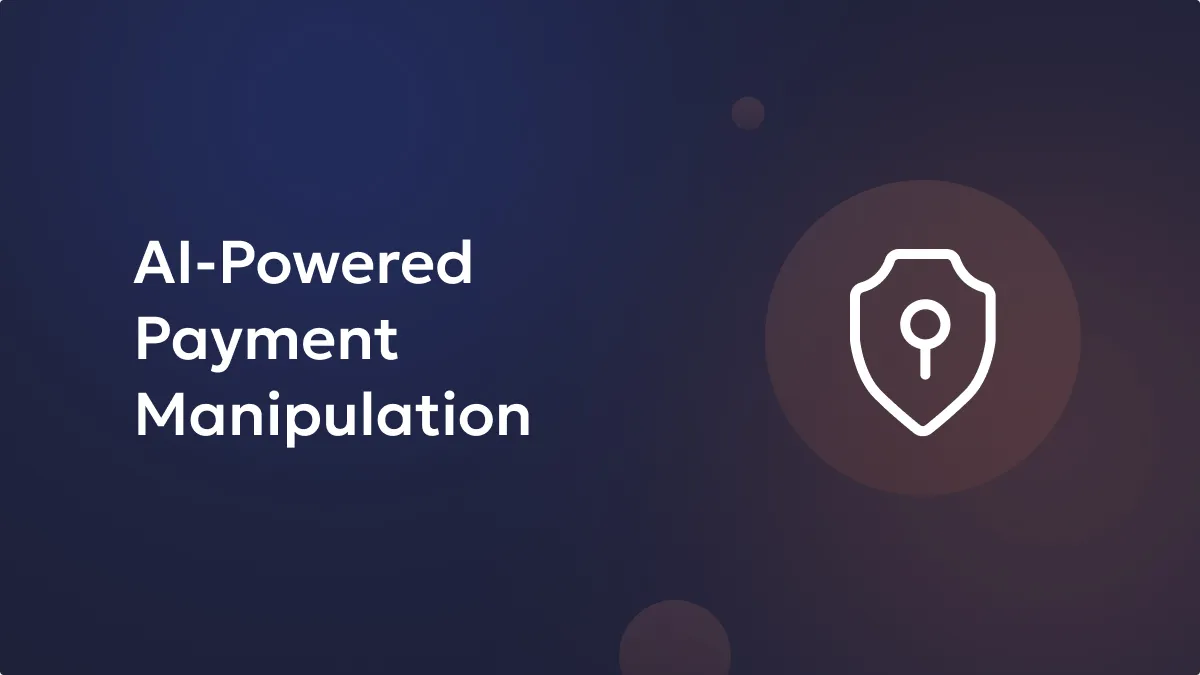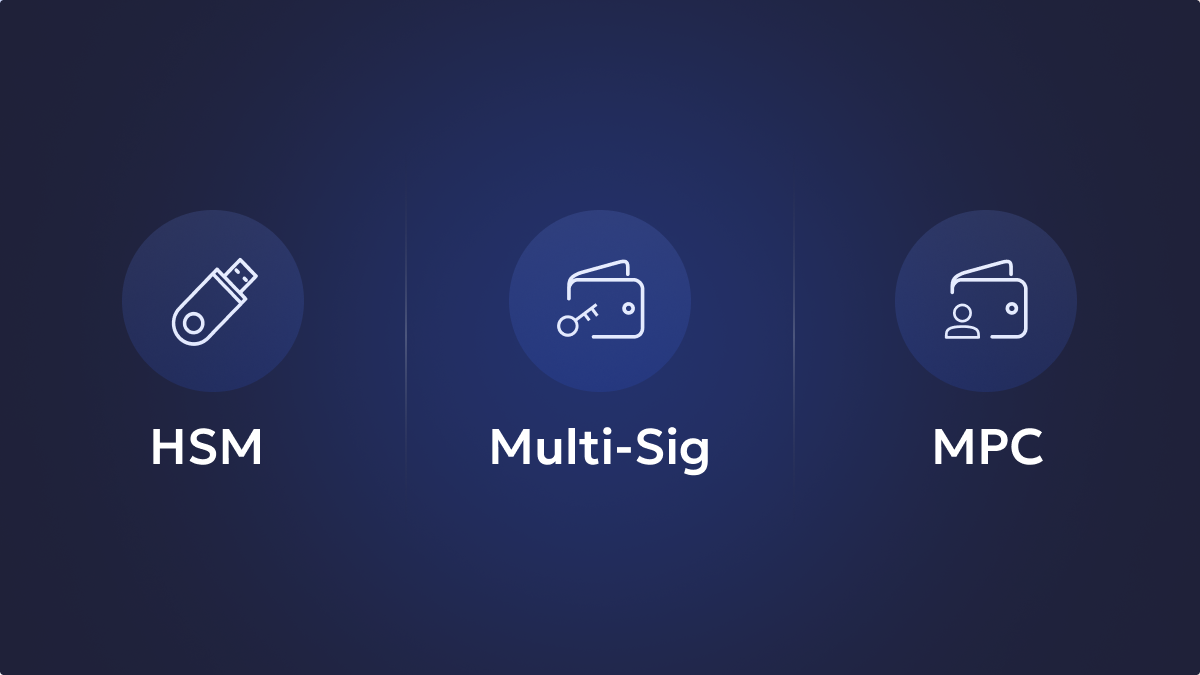The world of digital assets is rapidly evolving, with security emerging as a paramount concern for individuals and institutions alike. As the adoption of cryptocurrencies continues to surge, the need for robust and reliable storage solutions has never been more pressing.
Enter Multi-Party Computation (MPC) wallets—a groundbreaking technology that is revolutionizing the landscape of digital asset security. By leveraging advanced cryptographic techniques, MPC wallets offer a new paradigm for safeguarding cryptocurrencies, addressing the limitations of traditional wallets while providing enhanced protection against cyber threats.
In this article, we will delve into the intricacies of MPC wallets, exploring their inner workings, benefits, and potential applications. We will also examine how this cutting-edge technology is transforming the way institutions approach digital asset custody, enabling them to navigate the complexities of the regulatory landscape with greater confidence and efficiency.
What is an MPC Wallet?
An MPC wallet is a sophisticated cryptocurrency wallet that harnesses the power of Multi-Party Computation to secure digital assets. Unlike traditional wallets, which rely on a single private key, MPC wallets distribute the private key across multiple parties or devices. This decentralized approach eliminates single points of failure, significantly enhancing the overall security of the wallet.
At the core of an MPC wallet lies a complex cryptographic protocol that allows multiple parties to jointly compute a function over their respective inputs while keeping those inputs private. In the context of digital asset storage, this means that the private key is split into multiple shares, each held by a different party or device. These shares are then used collaboratively to sign transactions, without ever reconstructing the complete private key.
The beauty of MPC technology lies in its ability to maintain the security of the private key even if one or more of the parties are compromised. An attacker would need to breach multiple parties simultaneously to gain access to the wallet, making it significantly more challenging to steal funds. This distributed trust model is a game-changer in the world of digital asset security, offering a level of protection that traditional wallets simply cannot match.
Moreover, MPC wallets are highly versatile and can be tailored to suit the specific needs of different users. For instance, they can be configured to require a certain number of parties to approve transactions, allowing for granular control over access to funds. This flexibility makes MPC wallets suitable for a wide range of scenarios, from individual users seeking enhanced security to institutions managing large portfolios of digital assets.
As the blockchain ecosystem continues to mature, MPC wallets are poised to become the gold standard for secure cryptocurrency storage. Their ability to provide institutional-grade security while maintaining the decentralized ethos of blockchain technology makes them an attractive option for both individual investors and organizations alike. With ongoing research and development in the field of MPC, we can expect to see even more innovative applications of this technology in the years to come, further solidifying its position as a cornerstone of digital asset security.

The Benefits of MPC Wallets for Secure Crypto Storage
MPC wallets redefine the landscape of digital asset security by adopting a distributed key management system. This system employs cryptographic protocols to fragment private keys across multiple entities, thereby enhancing security through a collaborative approach. By ensuring that no single entity holds the complete key, MPC wallets significantly reduce the risk of unauthorized access, offering a robust alternative to traditional security models. This architecture is particularly beneficial for organizations that need to safeguard substantial digital holdings against sophisticated cyber threats.
Decentralized oversight is another critical advantage provided by MPC wallets. They facilitate a governance model that allows for collective decision-making, making them ideal for institutions that require multifaceted approval processes for asset management. This level of control is crucial for entities that must comply with stringent regulatory requirements and maintain transparency in their operations. By enabling detailed policy configurations that necessitate multiple authorizations, MPC wallets support complex operational needs while ensuring compliance and risk mitigation.
The adaptability of MPC wallets extends to their extensive network compatibility. They seamlessly integrate with a multitude of blockchain platforms, offering users the flexibility to engage with diverse digital environments securely. This interoperability is vital for enterprises that operate across different blockchain ecosystems and require a cohesive security framework. Additionally, MPC wallets can effortlessly interface with decentralized finance (DeFi) platforms and exchanges, providing users with the agility to participate in various financial activities while maintaining rigorous security standards. This capability positions MPC wallets as a crucial asset within the evolving blockchain infrastructure, empowering users to manage digital assets with assurance and adaptability.
Choosing Between Custodial and Non-Custodial MPC Wallets
Deciding on the appropriate MPC wallet type requires a careful evaluation of user needs and strategic priorities. Custodial MPC wallets rely on a third-party provider to manage and safeguard the private keys, offering a simplified experience with streamlined access to account recovery and advanced security features. This setup appeals to users who value ease and the confidence that comes from professional management. Nevertheless, this convenience involves trade-offs in terms of reduced autonomy and privacy, as the custodian holds control over the keys.
On the other hand, non-custodial MPC wallets—also referred to as self-custody wallets—grant users full authority over their private keys and digital assets. This approach resonates with the decentralized principles of blockchain, prioritizing privacy and control. Users are responsible for their own security measures, including key protection and recovery processes, offering a higher degree of independence. For individuals who prioritize complete ownership of their assets, non-custodial wallets provide the necessary freedom and responsibility to manage their holdings without external intervention.
When determining which type of MPC wallet to use, several factors should be considered. Users need to evaluate their ability to handle security tasks and their willingness to assume the risks associated with self-custody. Factors such as regulatory compliance, organizational guidelines, and the complexity of managing digital assets on a larger scale play crucial roles in this decision. Each wallet type presents unique benefits tailored to varying needs, from individual investors seeking independence to institutions requiring structured asset management strategies.
Implementing MPC Wallets for Your Business
To effectively integrate MPC wallets into your business framework, start by identifying your organization’s unique security needs and operational priorities. Understand the specific industry standards that apply to your operations, as these will guide the selection process for an MPC wallet solution. Consider the scale and nature of your digital transactions, ensuring the chosen solution aligns with your operational risk profile and enhances your cybersecurity posture.
When evaluating potential MPC wallet providers, prioritize those offering advanced security features and adaptable governance frameworks. Look for solutions that allow for dynamic policy configurations, enabling alignment with your business processes. Certifications, such as ISO 27001, should be considered as they reflect a provider’s commitment to maintaining high security standards. Ensure the provider’s solution is intuitive and supports integration with your existing systems to promote seamless adoption and operational continuity.
Assess the integration capabilities of the MPC wallet to ensure it fits within your current technological environment. The wallet should be compatible with the blockchain networks you utilize, as well as any additional platforms you may incorporate in the future. Evaluate how the wallet interfaces with your enterprise systems to facilitate efficient transaction management and data processing. Proper integration of an MPC wallet can enhance your organization’s operational efficiency, providing a cohesive strategy for managing digital assets securely and effectively.
The Future of MPC Wallets in Digital Asset Security
As digital currencies become more integrated into global markets, MPC wallets are emerging as pivotal tools in redefining asset management strategies. Their sophisticated cryptographic architecture offers robust protection, addressing the vulnerabilities associated with traditional storage methods. The adaptability of MPC wallets ensures they remain relevant in a rapidly changing technological landscape, making them indispensable for secure digital transactions.
Research and development in MPC technology continue to break new ground, paving the way for enhancements in privacy, security, and user interaction. As experts refine cryptographic algorithms, we anticipate improved performance and reduced complexity, which will make these wallets more accessible to a diverse user base. This ongoing innovation promises to elevate MPC wallets, ensuring they meet the evolving demands of the digital economy.
The potential for MPC wallets extends beyond financial services, finding applications in industries such as governmental operations and corporate treasury management. These wallets provide a scalable solution that aligns with regulatory frameworks, offering secure and efficient digital asset handling. As their adoption broadens, MPC wallets will become integral to the infrastructure of various sectors, supporting a secure and interconnected digital ecosystem.
As the digital landscape continues to evolve, MPC wallets are poised to become the cornerstone of secure cryptocurrency storage. By leveraging cutting-edge cryptographic techniques and distributed key management, these wallets offer unparalleled protection for your digital assets. If you’re ready to experience the future of digital asset security, start a free trial or speak to custody experts to explore Liminal’s platform and let us help you navigate this exciting new frontier with confidence.






